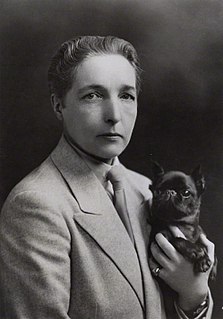Цитата Долорес Уэрта
Условия были ужасными. В то время сельскохозяйственные рабочие зарабатывали всего около 70 центов в час - 90 центов были самой высокой заработной платой, которую они зарабатывали. В полях не было туалетов; у них не было холодной питьевой воды. У них не было периодов отдыха. Люди работали от восхода до заката. Это было действительно ужасно.
Связанные цитаты
Пятьдесят девять центов. Много лет я носил пуговицу с надписью «59 центов». Его носили и многие мои коллеги. Цель заключалась в том, чтобы люди подходили и спрашивали: «Что означает «59 центов»?» Затем можно было бы начать дискуссию о том, как женщины, работающие полный рабочий день в США, зарабатывают 59 центов на каждый доллар, заработанный мужчинами.
Когда мы говорим о гендерном разрыве в оплате труда в Соединенных Штатах, и если вы посмотрите на женщин без детей, то они зарабатывают 96 центов на каждый доллар, который зарабатывает мужчина, а матери — около 76 центов. Это почти на 25 процентов меньше. У матерей-одиночек ситуация еще хуже. Треть из них живет в нищете или просто на грани бедности. Это неприемлемая ситуация.
Хотя она [Хиллари Клинтон] может на словах говорить о прогрессивных проблемах, она возглавила инициативу, и там, на Гаити, она определенно сделала это, чтобы снизить минимальную заработную плату с 60 центов в час до 40 центов в час. Она, знаете ли, всегда была хорошим другом больших банков и страховых компаний.
Мы думали, что шансы на то, что все будет работать нормально, составляли верхние 90 процентов, иначе мы бы не пошли. Но... в полете возникли некоторые проблемы, но я смог с ними справиться, хотя это были вещи, к которым мы особо не готовились. Но это было время холодной войны, и поэтому на нас оказывалось сильное давление, чтобы начать действовать, а русские утверждали, что они - Советы утверждали, что они опережают нас в технологиях.
В частности, афроамериканцы столкнулись с крахом своего совокупного богатства. Раньше у них было 10 центов на доллар средней белой семьи. Те 10 центов за доллар, которые афроамериканская семья имела обыкновение рухнуть до 5 центов за доллар, учитывая фокус хищнического кредитования на афроамериканском сообществе и степень, в которой они были действительно опустошены кризисом лишения права выкупа. Так что да, я думаю, что есть много разочарований там.
Меня очень вдохновляет музыка. Я большой слушатель классического рока 60-х и 70-х годов. И я действительно просто люблю общую свободу того времени, конца 60-х и 70-х. Мне нравится, что у вас было так много разных способов самовыражения, мода действительно была одним из них, идеи столкновения не существовало, и люди использовали одежду как возможность выразить себя. Меня это вдохновляет - ты можешь смешивать текстиль, ткани, ты на 100% был тем, кем ты был, и именно отсюда исходит мое главное вдохновение.
Мы основали церковь, начав проповедь в воскресенье вечером. В самое первое воскресенье к нам пришло 70 человек. На второй неделе их было 60, на третьей неделе — 53, а на четвертой неделе — 45. Я часто шутил, что мы с этим справились — у нас оставалось всего четыре с половиной недели, пока не стало больше. люди. Примерно в то же время мы впервые посвятили себя Христу. Мы переросли школьный зал через 12 месяцев. Народу было так много, что мы использовали дорожный ящик в качестве платформы, а то, что должно было быть сценой, в качестве балкона, чтобы мы могли вместить больше людей.
В 1880-х годах женщинам оставалось несколько десятилетий до получения права голоса. Немногие владели собственностью, если им даже разрешалось это делать. В дополнение к обязанностям по уходу за детьми многие работали на работе, которая либо недоплачивалась, либо вообще не оплачивалась. По сути, механизмы прогресса для женщин медленно двигались почти во всех сферах жизни.





































